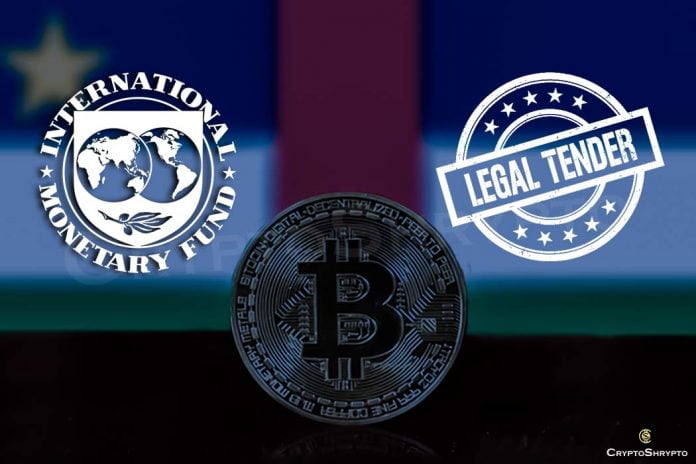The Central African Republic (CAR) became the second country to accept Bitcoin as legal tender on April 25. However, the Central African Republic’s adoption of bitcoin has alarmed the International Monetary Fund (IMF). Abebe Aemro Selassie, Africa director of the IMF, stated that for BTC to function as legal cash, the government must already have a “strong” payment infrastructure in place, as well as financial transparency. Given the considerable barriers to Bitcoin adoption in the CAR, it’s unclear why lawmakers voted in favour of the legal tender bill. According to Selassie, BTC should not be viewed as a “panacea” capable of curing a country’s economic difficulties.
David Gerard, the author of Attack of the 50 Foot Blockchain, points out that internet availability in the Central African Republic is limited, with only 11% of the country having internet access. According to World Data, less than 30% of CAR’s population has access to a phone. Bitcoin adoption appears to be an uncommon move for the country, given its weak infrastructure, unstable electrical supply, and extensive warfare.
The Central African Republic’s National Assembly decided to enact a law making legal currency legal tender in order to strengthen the country’s economic prospects. The Central African Republic, like El Salvador, will utilise Bitcoin alongside its existing fiat currency, the CFA franc, in a dual currency system.
Following the passage of the Bitcoin legal tender measure, Obed Namsio, President Faustin-Archange Touadera’s Chief of Staff, stated:
“a decisive step toward opening up new opportunities for our country.”
Read more:
- Central African Republic becomes second country to adopt Bitcoin as legal tender
- Three African countries aims to adopt cryptocurrency and blockchain solutions




